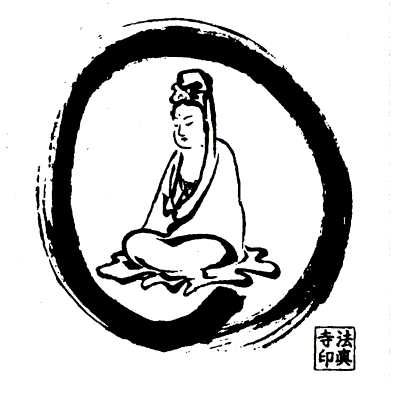
Swimming in de-nial
Dennis Genpo Merzel, Roshi
Many of us would like to believe that Zen practice is going to take care of all our needs; psychological, spiritual and mental. The problem is that most of us have developmental limitations that act as barriers and hindrances to our accomplishments in the practice. Often these limitations need to be worked through with professionals who are trained to focus on those problems.
But it can be difficult to find the right person to work with, one who can understand our spiritual practice and who has the insight and training to move us along on the path.
Most Zen teachers do not have the time nor the training to address the personal hindrances that may be uncovered through practice. It is not that the Zen tradition is somehow lacking, this issue is simply part of the koan that we want to face in the West.
A related question is, how do we transmit the Dharma through the Eastern model that has been monastic and primarily male, to the West which is generally non-monastic and more open to woman working alongside man?
It is blind, or at least naive, to believe that the Asian model is going to fit all of our Western needs. If we are to become complete human beings who manifest and embody the Buddha-Dharma, we must be willing to work on our own limitations and barriers.
We can sit on the cushion for ten, twenty, even thirty years and still remain in denial about how little we really manifest the Buddha’s teaching.
The age-old problem in Zen is to become stuck in our insights and realizations. It is especially easy to get stuck in the absolute perspective and to ignore all the karmic consequences of our actions.
And the more position we inherit, the more problems we can create. It is essential that we honestly and continuously look at ourselves, and then to remain open to working on the limitations that we find. If we are not growing, we are regressing.
Zen training helps us to develop our skills of single-minded focusing—but that is not enough. We must also learn to maintain simultaneous awareness of our surroundings and the effect of our actions.
The more senior we become as Zen students or teachers, the more we can abuse the power that we have been entrusted with. In fact, the question we really need to ask ourselves is, how, where and when do I abuse that power?
We must stay vigilant because it is so easy to use zazen to hide from the consequences of our actions. Maybe we are like a person happily driving down the road, eyes focused ahead, never glancing into the rear view mirror.
We can live our lives in some kind of delusional contentment, never seeing the havoc that we are causing or the accidents we leave in our wake. Of course the consequences will catch up with us eventually; like a surfer who naively believes he is racing in front of the ordinary wave, when in fact it is the tidal wave.
If we don’t take care of our psychological handicaps we will certainly abuse the power that we gain through samadhi. Samadhi is a two edged sword: it can be used to cut through delusion and it can be used to abuse others through our own ego trips.
If we do not see clearly all the levels and aspects of consciousness, how can we truly say that we are accomplishing the Buddha Way? And, if we cannot see ourselves as others see us, how can we say that we have realized the self?
Even though we may realize that truly there is no self or that this self is unfixed, all of us continue to operate with some fašade of self.
Regardless of how long we have practiced, we must guard against the arrogant belief that we know or have accomplished the Way. Forever, we are travelers and students of the Way, and there are no masters.
I don’t say there is no Zen, I only say there are no masters of Zen. If you need help, seek it. If you don’t need help, seek it anyway. Don’t go for a swim into that deep river in Egypt called ‘de-nial.’
naar bovenUit:
de Lotusvijver
herfst/winter 2000